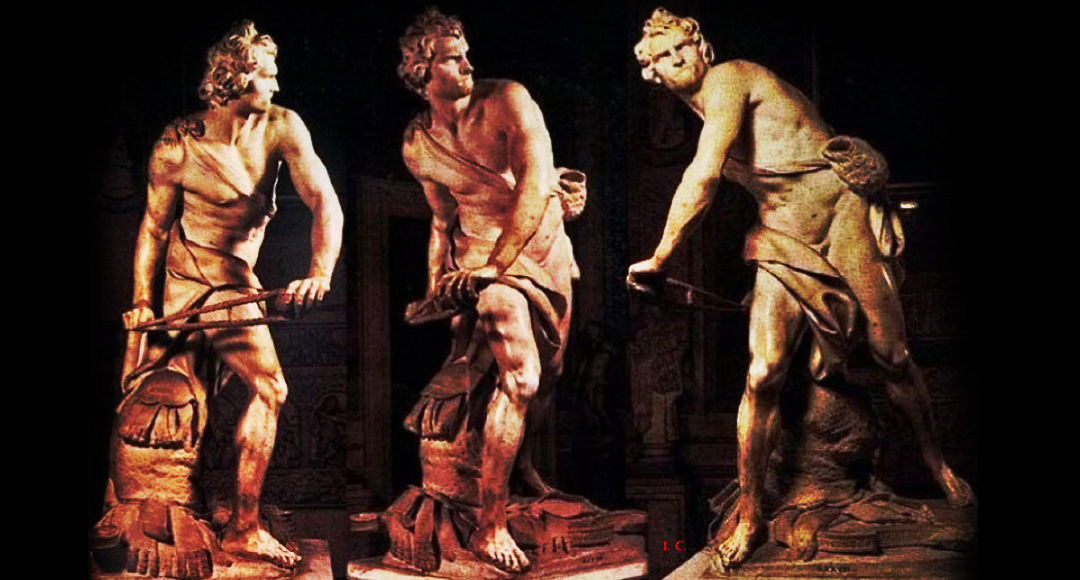Tastes vary and are generally relative to the individual’s experiences and develop naturally in this way. Tastes can indeed be ‘educated’ (or trained, if you like), but knowing something is no guarantee of enjoyment or engagement. One might understand a thing and still not ‘get’ or even like it, for that matter.
For example, I understand the beauty and artistic/geometric/theological significance of 12thC Christian icon paintings, but in truth they hold no place in my heart and I wouldn’t be saving them if our planet was suddenly scheduled for intergalactic demolition. Bernini’s David (c. 1664) is another story entirely – for me, this David epitomises the human condition, our striving, intensity, and vigour in the face of great opposition, our struggle to be heard (in this case: seen) amongst the moaning many.
He is the rugged forthright individual with a concentrated gaze we all recognise; he embodies Bernini’s artistic mastery of both eye and hand. For others, he’s just another twisted Baroque ‘statue’ to nod at vacantly while listening to the audio-guide ‘explain’ its significance on one’s 1-hour tour of the Borghese Collection, while wondering ‘what’s the deal with all these naked dudes?








